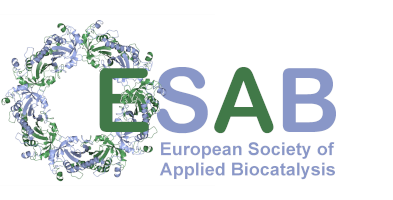FreeGenes: How and why we built and distributed thousands of open source modular genetic parts, and what we learned
Abstract
"Information is power. But like all power, there are those who want to keep it for themselves". The current academic-industrial believes that giving access to genetic material would be dangerous, either for safety or their pocketbook. The ability to do bioengineering is locked up for the exclusive use and benefit of the powerful in existing institutions. At FreeGenes, we believed that it was unjust that these genetic parts were, largely, only available to academics, and so we sought out to build a collection of genetic parts that were available to everyone: the academic, the industrialist, or the hobbyist alike. Over the next few years, we built systems for the production, organization, and distribution of the first truly open-source genetic parts library. I'll begin with the historical and philosophical backdrop that led to the development of FreeGenes and how that influenced which parts we built. Then, I'll dive into the technical details of how we managed the design and production of genetic parts. Finally, I'll conclude with the future-facing perspective on what we learned during FreeGenes and what the future holds for open source genetic parts and components.
About the Speaker(s)
 Keoni Gandall is a startup founder building Nanala, a company that aims to 1/10 the cost of assembling DNA. Previously, he worked in Drew Endy's lab at Stanford University, leading the FreeGenes Project by the BioBricks Foundation from 2017 to 2020. During this time, he helped design the largest open source genetic toolkits ever distributed, including several modular genetic toolkits aimed at building full organisms from scratch, including all genes from JCVI-Syn3a, Meso-plasma florum, Mycoplasma pneumoniae, and Mycoplasma genitalium, as well as the essential genes from E. coli and Bacillus subtilis, a large toolkit of enzymes used in biotechnology, molecular diagnostics toolkits for COVID detection, and Bacillus subtilis secretion toolkits. From 2013 to 2017, he worked as an intern in Chang Liu’s lab at the University of California Irvine, working on developing their directed evolution systems and developing new ways to engineer yeast mitochondria. From 2020 to 2021, he built a company called Sporenet Labs, aimed at distributing genetic parts in Bacillus spores for an ultra low cost. From 2021-2023, he helped co-found Trilobio, a company building robots for full end-to-end automation of synthetic biology protocols, and most recently has founded Nanala, aimed at lowering the cost of DNA through better DNA assembly protocols. For the last 10 years, he has maintained a vibrant home-lab to do biology experiments and maintains his own bioinformatics software suite coded in Go.
Keoni Gandall is a startup founder building Nanala, a company that aims to 1/10 the cost of assembling DNA. Previously, he worked in Drew Endy's lab at Stanford University, leading the FreeGenes Project by the BioBricks Foundation from 2017 to 2020. During this time, he helped design the largest open source genetic toolkits ever distributed, including several modular genetic toolkits aimed at building full organisms from scratch, including all genes from JCVI-Syn3a, Meso-plasma florum, Mycoplasma pneumoniae, and Mycoplasma genitalium, as well as the essential genes from E. coli and Bacillus subtilis, a large toolkit of enzymes used in biotechnology, molecular diagnostics toolkits for COVID detection, and Bacillus subtilis secretion toolkits. From 2013 to 2017, he worked as an intern in Chang Liu’s lab at the University of California Irvine, working on developing their directed evolution systems and developing new ways to engineer yeast mitochondria. From 2020 to 2021, he built a company called Sporenet Labs, aimed at distributing genetic parts in Bacillus spores for an ultra low cost. From 2021-2023, he helped co-found Trilobio, a company building robots for full end-to-end automation of synthetic biology protocols, and most recently has founded Nanala, aimed at lowering the cost of DNA through better DNA assembly protocols. For the last 10 years, he has maintained a vibrant home-lab to do biology experiments and maintains his own bioinformatics software suite coded in Go.
